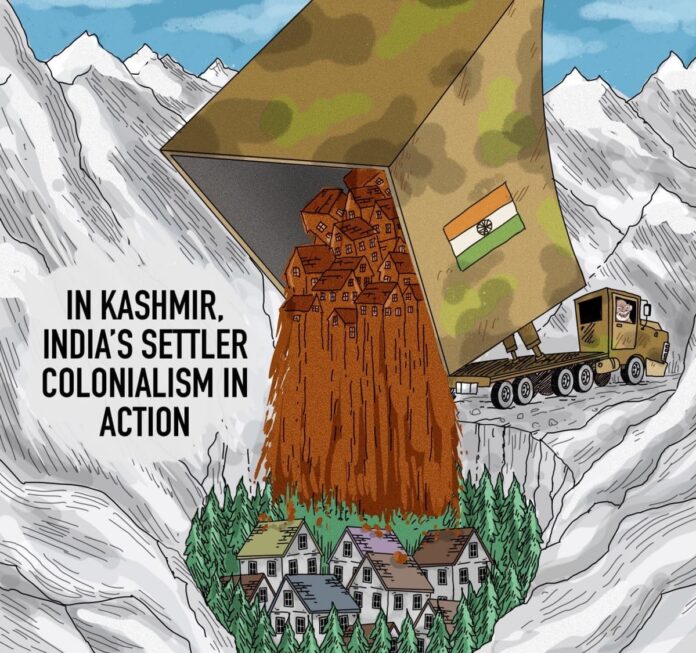Spokesman Report
Islamabad: 10th session of the Expert Mechanism on the Right to Development concluded at Geneva. The concept paper of Working Group on the Right to Development states that the Guiding Principles on Business and Human Rights are grounded in the recognition of existing obligations of States to respect, protect, and fulfill human rights and fundamental freedoms.
Dr. Volker Türk, UN High Commissioner for Human Rights said that “Conflicts are raging, with a profound toll on human rights, on the protection of civilians, and development for millions of people…The right to development plays a crucial role in building a more peaceful, safer, more just, more generous and more prosperous world.”
Thematic study by the Expert Mechanism on the Right to Development submitted a document to the United Nations vide document # vA/HRC/57/40 dated July 12, 2024. The document states that the right to development is defined in the Declaration on the Right to Development as “an inalienable human right by virtue of which every human person and all peoples are entitled to participate in, contribute to, and enjoy economic, social, cultural and political development, in which all human rights and fundamental freedoms can be fully realized”.
The document further states that self-determination is an inherently collective right, with implications for individual rights as enshrined in international legal instruments. Article 1 (1) of both International Covenants on Human Rights stipulates that: “All peoples have the right of self-determination. By virtue of that right, they freely determine their political status and freely pursue their economic, social and cultural development.” The inclusion of the right to self-determination in both Covenants was seen as vital for realizing all other human rights. It is telling that the very first paragraph of article 1 common to both Covenants relates to the right of peoples to self-determination and that all individual rights follow thereafter.
The Declaration on the Right to Development reinforces the principle that self-determination is an essential collective right. It asserts that the human right to development implies the full realization of the right of peoples to self-determination, which includes the exercise of their inalienable right to full sovereignty over all their natural wealth and resources.
The people of Kashmir are most heartened to read these lofty statements. Such a declaration was also made by Kofi Annan, former UN Secretary General when he said, “The right to development was the measure of the respect of all other human rights. He added that “the aim should be “a situation in which all individuals are enabled to maximize their potential, and to contribute to the evolution of society as a whole.”
It is a fact that since the occupation of Kashmir by India in October 1947, the situation has ceased to exist or even nurture where all individuals are ‘enabled to maximize their potential, and to contribute to the evolution of society as a whole.’ Instead, 14 million people of Indian occupied Jammu & Kashmir live in ‘the most beautiful prison’ as reported by European parliamentary delegation. They are guarded by over 900,000 alien troops of India who have the license to kill, maim, torture, rape and loot at will. The figure quoted is from an interview given by internationally known Indian novelist Arundhati Roy.
India’s greed for land grabbing and especially its pathological urge to hold and occupy territory of Kashmir in clear and blatant violation of UN Security Council resolutions has not only voided the possibility of growth and development in Kashmir but even stymied growth within India’s borders. In fact, the tension generated by the non-settlement of the Kashmir conflict has kept the South Asian Subcontinent in a state of war. A further inhibition to growth and development has been the two neighbors’ huge expenditure in nuclearization. Today, by diverting much needed funds from infrastructure and social development, the two countries stand on the brink of a terrible nuclear holocaust.
Ironically, it was India that initially endorsed the right to development in its correspondence with the UN Secretary General and it was India that had proposed in 1998 that the UN Commission on Human Rights (UNCHR) to annually discuss and evaluate progress in the realization of the right to development. The people of Kashmir demand that the Secretary General arrange an inspection in Indian occupied Kashmir to see to what extent India has allowed such an eventuality.
One cannot forcibly evict anybody from his or her property. It is a violation of international humanitarian law. Article 17 of UDHR says everyone has the right to own the property and no one will be deprived of his property without his consent. Now what is happening in Kashmir?
International Federation for Human rights (FIDH) reported about the land grab in Kashmir on October 2, 2024, that “Thousands have already been evicted from their lands and lost their homes.”
A.K Antony, former defense minister of India, speaking at the Upper House of India (Rajia Sabha), saying that we have allocated 74590 acre of land to Indian navy, army and Air Force. The land was allocated without the consent of the people of Kashmir. Now how much is 74590 acres. The total area of Manhattan, New York is 14,600 acres. So, India has allocated Kashmiri land, five times the area of Manhattan to its army.
The forcible eviction and demolishing of properties under the pretext of retrieving the state land has further worsened the already volatile situation in the region. Advocate Nasir Qadri, a prominent Kashmiri Jurist wrote “The anti-encroachment drive by the occupying administration identified land measuring 178005.213 acres in Kashmir region and 25,159.56 acres in Jammu region as encroached by the residents who basically owned the said land and properties under different state legislations (now repealed). Even the United Nations Military Observer Group in India and Pakistan (UNMOGIP) headquarter, Srinagar is also enlisted in the list of encroachers. The allegedly encroached land is the source of livelihood as farmland or urban economic activity for several thousand local families.” The total encroached land in Kashmir and Jammu is 203164 acres. And the area of New York city including Manhattan, Brooklyn, Queens, Staten Island and the Bronx is 193000 acres only.
Haris Zargar wrote in ‘Development and Change’ on January 4, 2024, “Under the pretext of combating land encroachment, the state authorities also launched a forceful eviction campaign, and by January 2023, the revenue administration asserted that they had reclaimed about 50,000 acres of State and kacharai (grazing) land throughout the territory (Chakraborty, 2023). In the context of a military occupation, the purpose of surveillance is therefore to dispossess individuals of their land through the encroachment narrative and to label Kashmiri Muslim land ownership illegal through the reconstruction of digital land records.”
Deforestations in Kashmir is another economic disaster. It has left vast parts of Kashmir denuded. It would take years, before psycho-physical rehabilitation of the people and economic reconstruction of the Valley of Kashmir could materialize.
The world powers should not be completely oblivious of the right to development of the communities under foreign occupations, like Kashmir. A sincere effort towards the settlement of disputes in such areas can be the first necessary step for the protection of their human rights, including the right to development.




